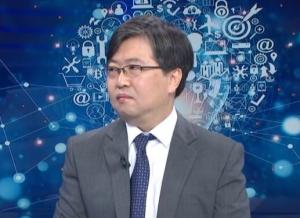Technical advisory for Professor Park Chul-wan, the nation’s top battery authority
“While talking like the best K battery, China overtakes”
“If the dispute gets prolonged, both of them are prolonged… the national competitiveness is undermined”
“No decision to judge’leakage of trade secrets’. It is difficult to accept SK’s”
Proposal of a’middle zone’ solution… “Jointly operated by creating a foundation and a fund”

In connection with the fact that the U.S. International Trade Commission (ITC) decided to win the battery dispute between SK Innovation and LG Energy Solutions, there were voices of academic experts concerned about “weakening the competitiveness of the domestic battery industry”. It is pointed out that in the context of intensifying global competition to preoccupy the electric vehicle battery market, if the dispute prolongs, neither SK Innovation nor LG Energy Solutions will be the’winner’. As a solution to this, an alternative was suggested that both companies should create a’middle zone’ and pursue a’win-win’ strategy.
On the 15th of this month, Professor Park Cheol-wan, a professor of automobile science at Seojeong University, expressed his opinion on the battery dispute between SK Innovation and LG Energy Solution in a long article through his Facebook page. Professor Park expressed regret that “the beginning of the dispute was a patent dispute between SRS (Battery Safety Reinforced Separator) and CCS (Ceramic Coating Separator).” did.
Professor Park has served as the head of the Next-Generation Battery Innovation Center under the Ministry of Trade, Industry and Energy and the general secretary of the Next-Generation Battery Growth Power Project Group. He is considered one of the leading battery experts in Korea, including serving as a director of the Korean Battery Society and the Carbon Society.
He said, “In the position of LG Energy Solutions,’Be proactive in agreement,’ based on the ITC ruling, but in the position of SK Innovation, even though there is no ITC ruling on’exposure of trade secrets’, the settlement fee is paid. It can be a mistake, so it has no choice but to go to the end.”
“In the short term, the’early loss’ strategy of LG Energy Solutions”proceeding damage’ has become a winning card in the short term, but it has become a paradoxical situation where SK Innovation, rather than a private company, destroys the basis for agreement.” In this situation, it would be common sense for SK Innovation to go through the process.”
Earlier in April 2019, LG filed a complaint with the ITC and the US Federal Delaware District Court, saying, “SK has infringed its trade secrets by stealing 76 key personnel from its battery business division since 2017.” In September of the same year, SK also filed a patent infringement lawsuit against ITC and the Delaware District Law, saying, “The batteries LG is selling in the US were manufactured using its own patents.”

In this process, in February of last year, ITC decided to lose SK Inno through a preliminary judgment on the grounds of’violation of evidence investigation procedures.’ It has accepted LG’s claim that SK intentionally attempted to delete evidence related to the issue of this case, whether or not the trade secret was infringed.
ITC raised the hand of the plaintiff, LG Energy Solutions, at the final resolution held on the 10th of this month. SK Innovation made a decision to ban the import of battery cells, related parts, and finished battery packs into the United States for the next 10 years. However, a clue was attached to suspend the effect of the decision for four years for the automaker Ford and two years for Volkswagen.
Professor Park said, “If this situation prolongs, both companies will become losers.” The’cathode active material ternary precursor’ industry has virtually become China’s flagship industry.”
“If you look at each one, we have an advantage and there is nothing ahead. As the battery industry in the US and Europe is awakening, we pointed out that our strengths are’preemption’ and our weaknesses are’basic’ and’depth’.
Professor Park advised that Sony Energy Tech, which produced the world’s first lithium-ion battery in 1990, was pushed down by Sanyo Electric, a latecomer, and that it should be taken as a teacher. In particular, he warned, “The situation is more serious now than then, and if time passes as it is, the loser will become the battery industry in Korea.”
As an alternative to resolving the deep conflict between the two companies, he proposed’creating a middle ground’. The two companies will jointly invest a total of about 1 trillion won in the tentatively named’Battery Foundation’ and’Battery Fund’, and the burden of investment is that SK Innovation should have an equal share instead of more than LG Energy Solution.
Professor Park believes that there should be no involvement in the relevant foundations and funds, such as from battery associations, unions, and even the government. The idea is to thoroughly operate the board of directors and co-chairperson systems recommended by SK Innovation and LG Energy Solutions, and move toward reconciliation and win-win growth.
As a specific role, first, he chose’human resource training’. It is that it is to provide research grants and scholarships to underprivileged universities, not to prestigious universities with abundant research funds. Regarding the’protection of intellectual property centers’, which was the beginning of this case, he added that it is necessary to consider ways to cooperate with the National Intelligence Service to prevent the leakage of secondary battery technology, which is the national core technology, to foreign countries.
Copyright holder © Market economy Unauthorized reproduction and redistribution prohibited
